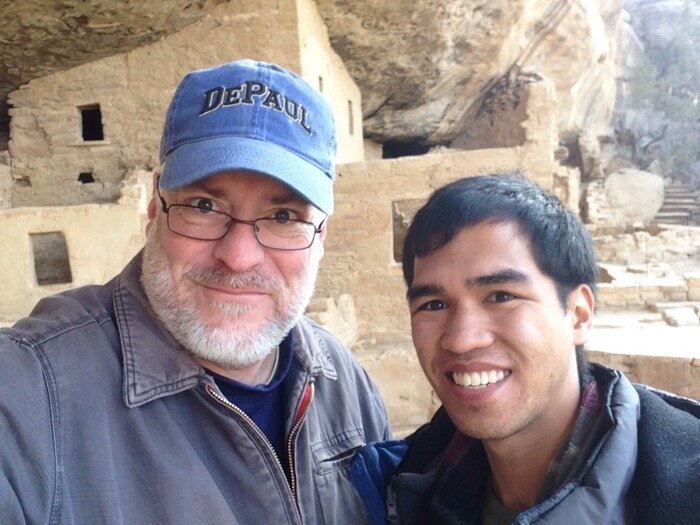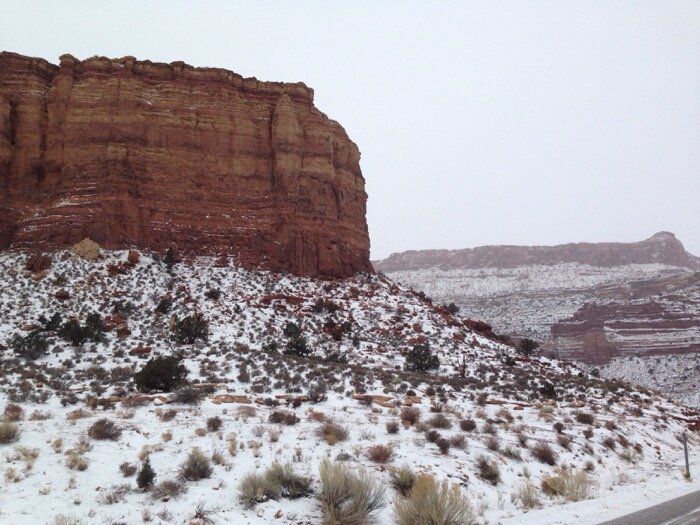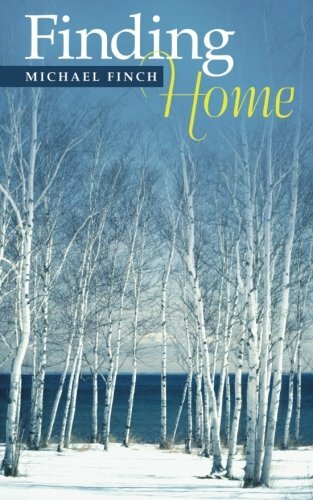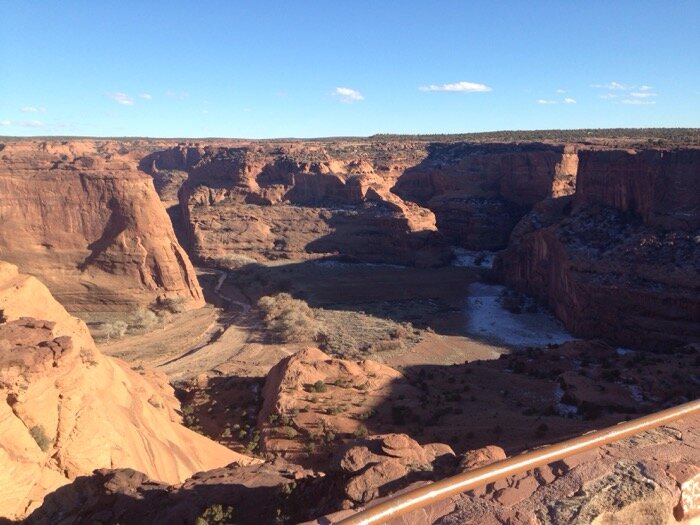The winds were warm, blowing dust from the Sonora down south, choking the air with thick brush. Creosote dried and mesquites yellowing, rain was a long ways off and a long time coming. I stood in front of the car, staring east, toward the Sangre de Cristo. Seeing the ridge line high, the faint clouds covering the peaks, maybe it was cooler up there, maybe some rain. Doubtful though.
I wondered, can a shadowy canyon really keep the world at bay? Can anything?
I suddenly remembered a blood pressure test once. My numbers were over-the-roof high. The nurse had looked worried -- not a good sign. I was hyped up and nervous, I didn't want to be there and didn't care anyway. She left the room and said she would check again. I sat there with sweaty hands, a tick, and my head racing, wondering why in the hell I was even doing this. If it's time Lord, just take me.
Finally, all wrapped and ready for another reading, I closed my eyes and thought of the high Arizona desert, thought of the open road, rolling east past Seligman, midday vistas, blue sky, puffs of cloud, the world open before me and a quiet settled down, pinion trees short, not a sound, nothing. An aimless cow, some dust rising from a rancher's Dodge truck, floating almost over the ridge. Not a care, just the road and open sky. I felt a peace come over that was better than any drink or drug, any sex, anything, period.
I could feel my heart calm almost, restful. My reading was normal and the nurse sighed, she padded my arm softly and smiled and said, "you are ok." I was, at least for the moment, and life is nothing but moments.

My son and I were staying at the Navajo Inn, or some roadside motel, nestled against a creek, in a narrow canyon with cottonwood and willow trees. It was late, the sun was almost down -- it had been a warm day -- but the night promised a cool breeze. You could feel and hear it in the trees and off the cliffs' downfall.
We ate at the motel diner and could hardly could get a table. The place was packed with every table full of laughs, tired smiles from road trips, and explorers ready to rest. Nice to see this way out-of-the-way motel do so well. I think we got the last room. The food was good -- not noteworthy restaurant review four star yelp good -- but darn good, diner good. And that is about the best one can be.
Funny thing is, there was hardly an English-speaking person in the place, not first language English-speaking anyways. I was trying to impress my son and told him these all are German tourists, until a man overheard me and said they were Danish. What the hell did I know, isn't that the same tree? Well, maybe, but I was embarrassed anyway and should have known. This was the third day of our trip and I swear, I didn't see much of anyone American on the roads, it was all foreign.
I loved that the world wants to see our great Southwest. My short time Danish friend told me that Europeans are in love with the American West, the desert, the canyons, the red rock, Monument Valley, Four Corners, the spires -- all of it. I am thankful for it, because I love it too. But, when did Americans stop loving it? Am I that old? Did we outgrow loving road trips across our own country? I do wish we knew our own country and didn't just airport hop and skip our way to another coast and beyond.
We walked down to the creek. I think we were in far northwest Arizona, close to Utah, or was it New Mexico? It all flows into itself. The winds were cool, the leaves flew, and I could smell the brush and the warmth of the day coming down the canyon walls, flowing into cottonwood groves.
My son skipped rocks into the creek and made up stories, I sat and lit a cigar and craved a beer and made up my own stories. I was a kid again, feeling happy, careless, and carefree. I told him we would look at the map when we get back to the room and plan our next day's route. We had four ways to go and the weather will be fine. Heaven had come to this small parcel of ground on this canyon floor.
Who knew the desert could be so cold? The wind whipped and tore through me. No resistance, not a tree, nothing. Standing by the roadside in Eastern Utah, we had come out of Colorado into a blaze of white mountains and deep cut valleys, the landscape then flattened and opened into red rocks and spires and a vast moonscape.

The awe comes from the complete vastness spread out before you. I wanted to get to a town before nightfall; one can drive for days it seems and find nothing. The wind had a fury now and clouds were darkening from the northwest, coming off the Wasatach Plateau and fanning out across the desert. The snow was circling in rivets across the road, starting to stick and I knew I had to find a place to rest. The thrill of it, the exploring and wonder of nature, the vastness and beauty of a great inland desert, once buried beneath a vast sea. Maybe I could just keep driving into that sea of white and disappear forever into the escape of the endless mesa. I came upon that canyon and drove on. There was no one. The road faded into dust and the wind came on strong. And peace finally fell over me.
*******
Editor's Note: Purchase Michael Finch's new poetry collection Finding Home at Amazon here.
Liberty Island is interested in more Odes to other extraordinary parts of America and the world. Please send your literary reflections and original photographs you've taken to [email protected]. 500-2500 words is a good target for short story odes, poetry odes can be shorter.




